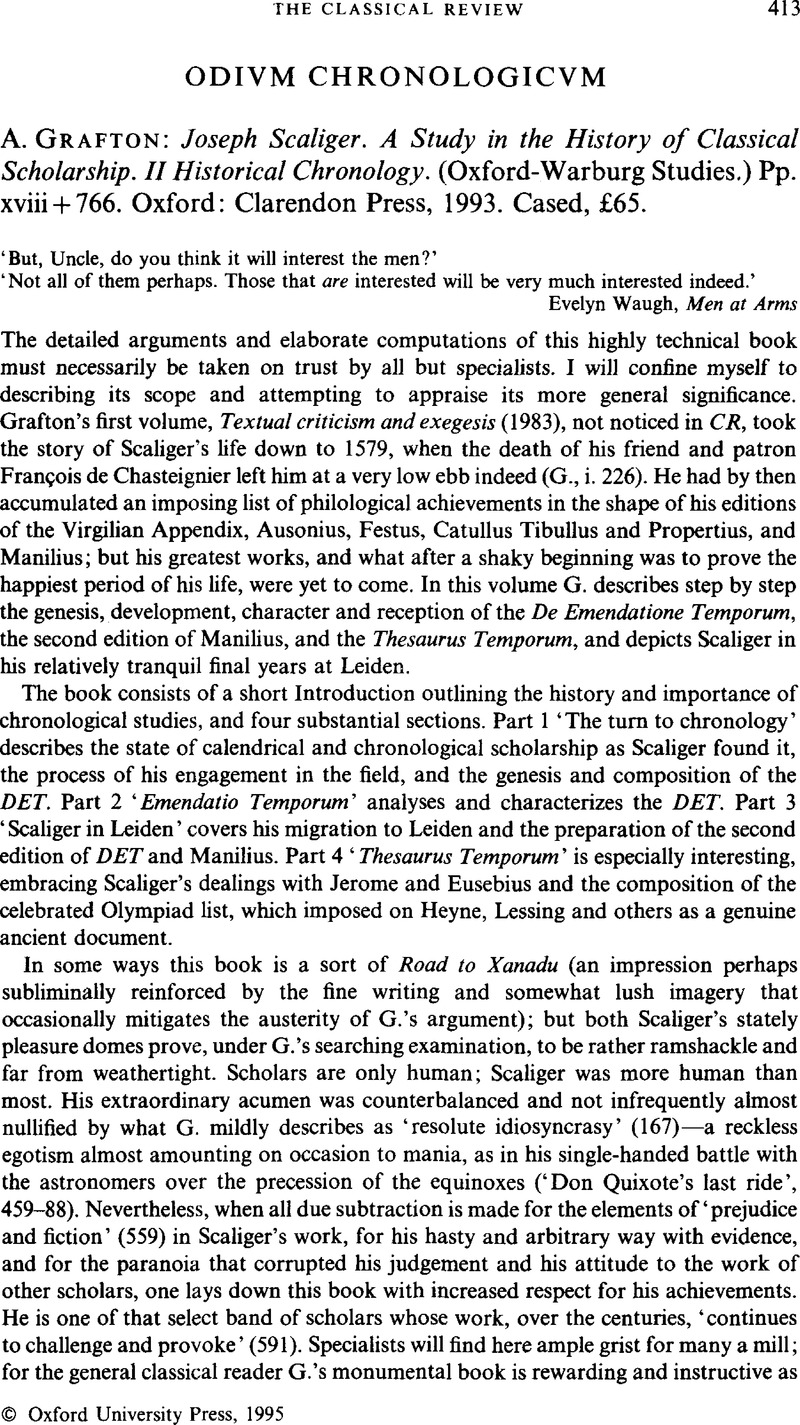No CrossRef data available.
Published online by Cambridge University Press: 16 February 2009

1 A pedantic niggle. Scaliger's note on Manil. 5.126 ‘EumaeusnatusestVlyssi’ does not mean ‘Eumaeus… was born to Ulysses’ (447). Vlyssi is genitive, as is Laertiadae in Manilius’ text. And while we are at it, it is misleading to say that Scaliger's identification of Pollio as the dedicatee of Ecl. 8 ‘has had its adherents over the centuries, down to C. G. Heyne’ (621); until 1971 it was the communis opinio. It is interesting, by the way, to note that when Scaliger propounded his thesis in the TT in 1606, the identification had already been in the public domain since 1600, when Pierre Daniel published Servius auctus. In the light of Scaliger's generally cavalier attitude to the contributions of other scholars it is legitimate to wonder whether his claim to be first in the field—‘nemo, quod sciam, hactenus aduertit——is to be ascribed to oversight or lack of candour.